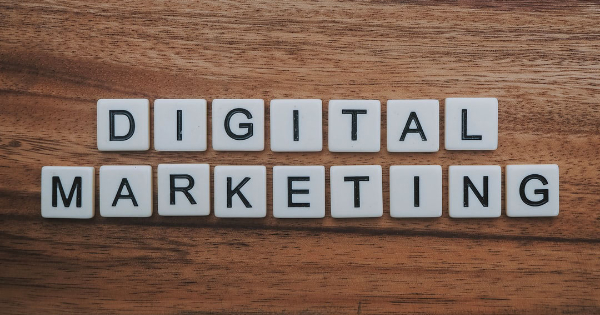
How digital marketing technology is changing small business marketing with new ways to optimize your marketing plans
Technology is continuously integrated into our daily lives. In 2020, video calls are routine, many cars can drive themselves, and your personal assistant might be a smart speaker rather than a person. Marketing, likewise, has undergone a technological revolution. Your business has more platforms to reach customers, more data to analyze, and more ways to optimize your marketing dollars.
Here are a few marketing tips for using these technological tools for your business:
Analytics
Big data has given way to smart data. There is just too much data for businesses to make sense of it all. However, by providing an analytical framework for your customer data, you can glean insights from it that you might otherwise miss.
The goal of marketing analytics is to create data visualizations that help you understand your products or services, your customers, and customer behaviors. Among the marketing tips for creating an analytical framework are:
- What are potential customers looking for? Without this information, your marketing will be about as effective as shooting in the dark.
- How do potential customers find what they are looking for? This information will tell you the most effective marketing channels for your business.
- Do your products or services meet your customers’ wants and needs? If you are not offering what customers want or need, you may need to change your offerings.
- Do customers perceive that your products or services meet their needs? Once you understand what your customers want and need, you can craft a message to explain how your business will satisfy those wants and needs.
For example, suppose your business supplies telecommunications equipment that you estimate will be replaced by customers every seven years. However, your data analytics may find that customers begin looking at replacement equipment at the five-year mark because of tax depreciation rules. Without this information, you might miss the opportunity to reach out to your customer right when your marketing message might be the most effective. Another example, for instance, is that of zero-click searches, more than 34% come from desktop searches and 62.5% are from mobile searches. Your analytics would tell you this type of information based on your site, and therefore can provide you with insight on how to get people to actually click on your page.
Ultimately, the goal of analytics is to get you the most bang for your marketing buck. By focusing on the data that tells you how to target your marketing message, analytics provides cost containment for small businesses. Analytics tells you where to spend, and equally importantly, where not to spend, your marketing budget.
Search Engine Optimization (SEO)
SEO is a method of discerning how search engines rank pages in its organic search results and refining the visible text and meta tags on a webpage to obtain a desired ranking. Learning how search engines work and how to optimize your website for search engine rankings can be one of the most important marketing tips for using technology in marketing. In the United States, 14 million small businesses have invested time and money into this because they see value in it.
The art in SEO comes in the “optimization” step. The search engines are highly sophisticated and mere keyword stuffing is not effective at obtaining a high ranking. Rather, keywords must be chosen and used carefully to optimize your results.
For example, your restaurant will never rank highly for the search term “hamburger” because there is too much competition. However, “family diner in Minneapolis” may provide an opening to get a high search ranking by being a common search phrase that has low levels of competition.
Search engine optimization also gives you the opportunity for content marketing. More content helps search engines rank your website. Developing a blog, infographics, podcast, or other content can provide more keywords for search engines to index for your website.
Moreover, content marketing allows you to offer free content to potential customers. Even if you do not convert content users into customers immediately, your free content can build your brand recognition and reputation.
Social Media
Social media is an important marketing platform. However, marketing tips for businesses that are new to social media are to develop a social media policy and marketing plan before you start sending out messages.
The reason is that social media is a double-edged sword. For every marketing success on social media, there are many embarrassments and apologies. Some marketing tips for a social media policy and marketing plan include:
- Control: Identify employees who are authorized to post to social media and, if possible, dedicate their office device to that social media profile. This minimizes the risk of posting to the wrong account or cross-posting messages that are not intended for the business’s account.
- Post regularly: Not only is an active account more likely to attract followers, but more content gives you more opportunities to go viral.
- Communicate: Use your social media to communicate information about your business. Potential customers are accustomed to using social media to search for specials, product or service announcements, and opening hours.
- Interact: Craft a thoughtful policy on interacting with your customers and other social media users. While you risk turning off potential customers for an errant message, social media users expect interaction with businesses to register compliments and complaints and ask questions.
One of the most important decisions you will make is which social media platforms to use and which, if any, to avoid. Unless you intend to have a full-time social media director, trying to post to all platforms can become overwhelming. Thus, choosing the best platform to reach your customers is one of the most important marketing tips to optimize the use of your marketing resources.
Pay Per Click (PPC)
PPC is a marketing channel that can boost your chances of being found by search engine users if you are in a crowded field. PPC ads are the search results served by your search engine that are identified as an “ad” or “advertisement” and appear at the top of your search results page.
The theory behind PPC is that most users do not distinguish between paid search engine results and organic search engine results. Moreover, because of the sheer volume of information online, few users scroll past the first page of search results. By placing your PPC ad at the head of the search results, your business has a good chance of getting a click.
More importantly, PPC ads are billed based on the volume of clicks. Thus, if your PPC ads are not effective, your bill will be low. As you fine-tune your PPC ad and get more traffic, your bill will go up.
Email Marketing
Email marketing can be a minefield. Analytics must be examined to fine-tune your email marketing campaign is essential so you do not cross the line between marketing and spamming.
However, a properly managed email campaign can produce good results for your business. Some marketing tips for an email campaign include:
- Value: Give recipients value for taking their time to read your email and taking up space in their inbox. Discount codes, coupons, and free content can have recipients looking for your next email rather than deleting it unopened.
- Personalize: Tailor your messages and value to your customers. Everyone likes to receive a personal message and a gift.
- Analytics: Track information like click-through rates and conversion rates (clicks that turn into sales) to measure the effectiveness of your campaign and identify which messages work and which do not.
- Experiment (or use AI): Test and adjust your email marketing campaign to optimize results.
- Gather feedback: Survey customers and track “unsubscribe” requests to determine when you are sending too many emails.
Game Advertising
In-game advertising can be an effective way to reach your potential customers, even if your product or services are not game related. Think of in-game advertising this way — advertisers during sporting events are not necessarily sports-related. Rather, they have identified significant overlap between sports fans and their customer base.
In-game advertising should be viewed the same way. If your customer base plays games, in-game advertising may be an effective way of reaching them.
To make the decision to advertise in games, consider a few marketing tips:
- Understand the game or game platform’s revenue model.
- Learn how ads will be used in the game.
- Work with your marketing agency to develop an effective and creative ad that will not disrupt the game.
Remarketing
You have probably had the experience of browsing an online shop, then seeing their ads everywhere online. If you wondered if it was coincidence or deliberate, it is deliberate and it is called remarketing.
Remarketing is a combination of many of the techniques discussed previously in this article. Users behavior is tracked and analyzed. This behavior is used to target marketing for companies that have an advertising relationship with the platform providing the tracking.
For example, Google remarketing knows what websites users visit. Based on these website visits, Google can direct ads on other websites, such as entertainment and news websites, to display marketing messages from businesses related to that browsing activity. Browsing a website that sells RV parts might result in your web browsing experience to be dominated by ads from the website visited or other websites that sell RV parts.
Remarketing can be highly effective because these customers have already browsed for the exact products you sell. By remarketing, you are, in effect, getting a second chance to convert the customer.
Using technology for marketing is not only efficient and effective, it may become necessary. So necessary, 96 percent of organizations use some form of cloud technology for storing information or resources.
However, very few businesses can afford the cost or time to implement an all-of-the-above approach to online marketing. For small or even medium-sized businesses, this means running a smart online marketing campaign. Analytics can help you to target and refine your marketing messages. Choosing the right platforms for your marketing can place the message in front of the right audience in a way that is most likely to generate a response. And using low cost, but sophisticated, marketing like SEO and content marketing can help your business achieve its marketing goals without breaking the bank.



